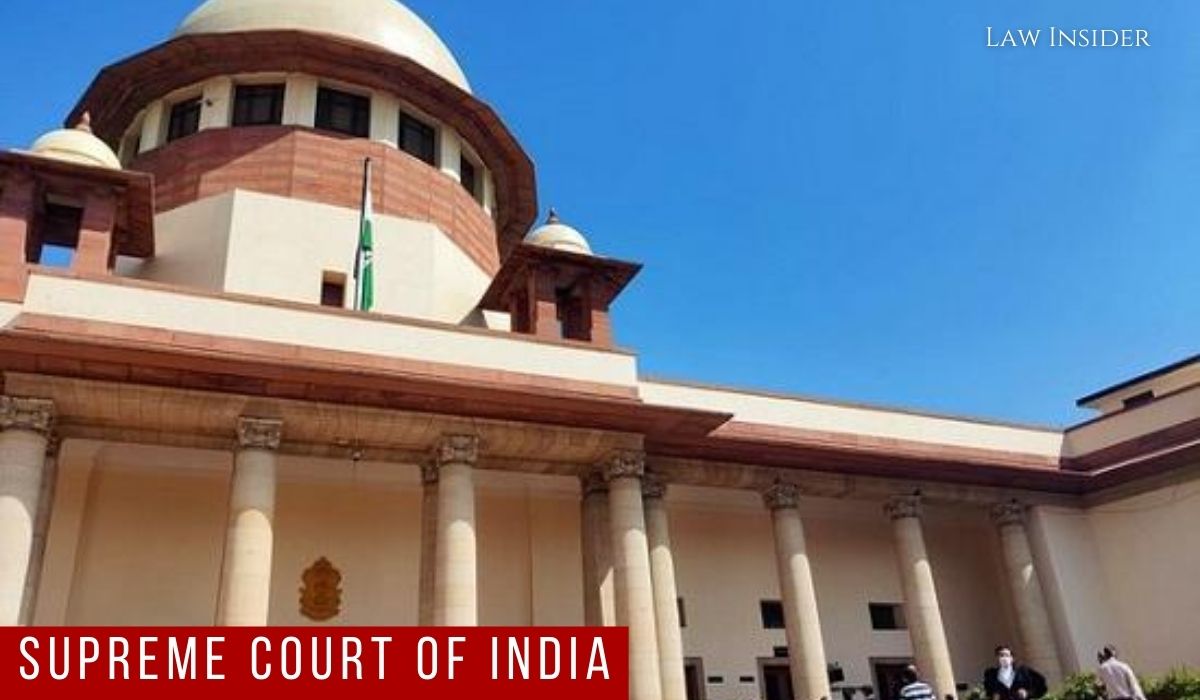Tanisha Rana
Published on: October 18, 2022 at 23:35 IST
In Prakash Singh and Ors vs. Union of India, the Supreme Court ordered the Nagaland government to create a new list of qualified IPS officers for recruitment to the position of Director General of Police for the State.
Orally, a bench of Justices DY Chandrachud and Hima Kohli stated that the current DGP should not be reappointed but rather be given the opportunity to retire in peace.
As Longkumer was also suggested for the position, the Bench objected to having him sit in the official meeting for the appointment of IPS officers to the position of DGP.
“We will let you set your house in order. Tell your Chief Secretary that we are taking a dim view of him [DGP] sitting in the meeting for his empanelment,” Justice Chandrachud remarked.
The Union Public Service Commission earlier pointed out shortcomings in its prior list, and the State administration was instructed to bear these in mind.
Longkumer was initially assigned a three-year tenure as DGP on June 27, 2018, however that term was extended to August of this year. After the Central government granted his inter-cadre deputation for the time after his retirement, he was recently nominated for a six-month extension.
Longkumer is a member of the Indian Police Service’s Chhattisgarh cadre.
The Prakash Singh ruling’s ordered police reforms were the focus of the petitioners’ current argument.
On Monday, the petitioners’ attorney claimed that the incumbent DGP’s continued employment amounted to a violation of the top court’s ruling.
“Gentleman continues to be in office. This evokes nothing but anger. it is nothing but subversion of judgment … I understand that post of DGP cannot be vacant, but his staying in office is subversion of rule of law. Let appropriate directions be issued today itself … Earlier DGP’s tenure was less than 2 years. It shocks my conscience that norms are being violated,” it was argued.
The attorney further stated that only individuals with political clout were suggested on the prior list.
In the Prakash Singh ruling, which mandated a number of reforms for the Indian police, advocate Prashant Bhushan, who represented the lead petitioner, noted,
“The DGP office is meant to be independent of political influence. Their move is completely contrary to Prakash Singh. If he gets repeated extensions, of course he will be in the good books of the govt. Let the main matter [non-implementation of the judgment] also be listed and heard.”
The Bench then remarked that Longkumer was an officer on deputation and lacked the required 30 years of experience for the top position.
Nagaland’s legal representative responded,
“The main problem in Nagaland is we do not have [enough] IPS officers from outside the State. We have to bring officers on deputation.”
The attorney said that the circumstances surrounding his attendance at the meeting to choose candidates for the DGP post were “peculiar.”
Then Justice Kohli stated,
“You are busy in justifying why he was required to be appointed but not explaining if the norms were followed or not.”
“What is the need to keep him for another 6 months. Let him retire in peace. Why the extension?” Justice Chandrachud added.
The Supreme court then declared in its decision,
“… we are of the considered view that in view of the communications issued by the UPSC, the Nagaland government must immediately send the list of empanelled officers for the DGP post. The list shall be drawn up in accordance with law after duly bearing in mind the deficiencies pointed out by the UPSC. This is to be done no later than by October 31.”
The matter was scheduled to be heard the first week of December, with the petitioner’s attorney free to bring up the matter again if necessary.

